NEW Online Science Courses: Cell Biology, Molecular Biology, Immunology, & Pharmacology
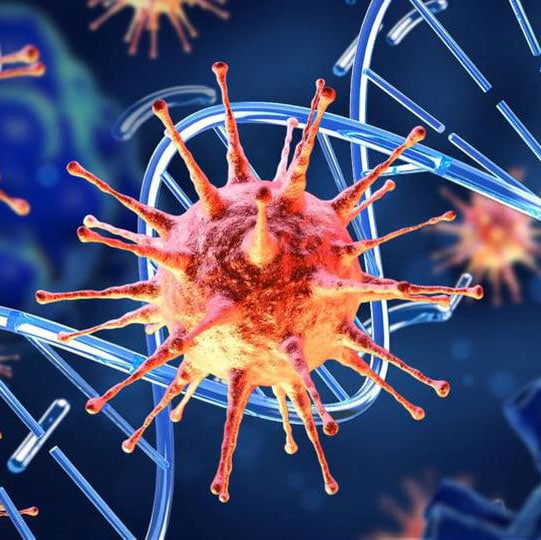 UNE Online is pleased to announce the development of four new online science courses, Cell Biology, Molecular Biology, Immunology, and Pharmacology, that are now available for registration.
UNE Online is pleased to announce the development of four new online science courses, Cell Biology, Molecular Biology, Immunology, and Pharmacology, that are now available for registration.
Science Prerequisites for Health Professions (SPHP) courses are 100% online courses that are popular with students who may need one or two courses to fill a gap in their transcript. These courses can also be utilized for students either currently working in the field of healthcare or for career changers, such as people looking to get into a deeper or expanded healthcare role.
SPHP students who successfully complete their prerequisite courses go on to apply to various health professions programs including Physician Assistant (PA), MD/DO, Nursing, Physical or Occupational Therapy, Veterinary, or other health professions graduate programs.
CGPS has developed four new online science courses in response to current student demand:
Cell Biology: BIOL 1050

Project: Disease Mystery Digital Story
Apply key concepts from cell biology to a real or imagined health-related scenario specific disease or illness that interests you. Conduct research on the disease based on your personal interest.
BIOL 1050 is a three-credit cell biology course that will introduce and explore basic concepts and theories of cell biology with an emphasis on its application in understanding human health.
Topics include an introduction to cell theory, the chemical composition of cells, cellular functions and cell signaling, reproduction and genetics. Each of these topics will be explored through course readings, video lectures/demonstrations, discussions, and a variety of experiential activities, including a course project.
Students will also have the opportunity to apply the concepts learned in this course to evaluate a human disease.
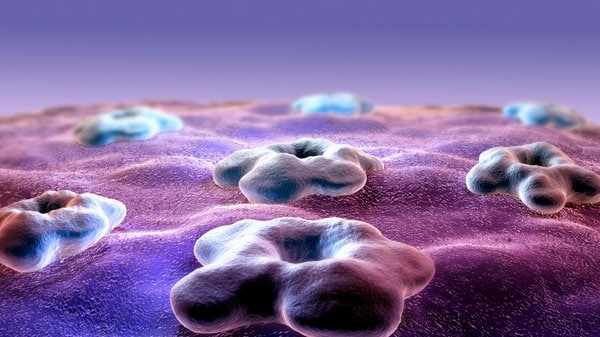
Project: Save the Cell – Escape Room
Apply the central dogma of a biology concept to help save a cell that is infected, by activating three receptors that will signal the immune system.
Cell Biology Course Outcomes
- Visualize the structure and function of cellular components through illustration or labeling of visual graphics.
- Identify the structure and function of cellular components.
- Illustrate the structure and function of cellular components.
- Demonstrate the chemical composition of cells.
- Describe and illustrate how cells transport materials and communicate.
- … and more.
Molecular Biology – BIOL 1055
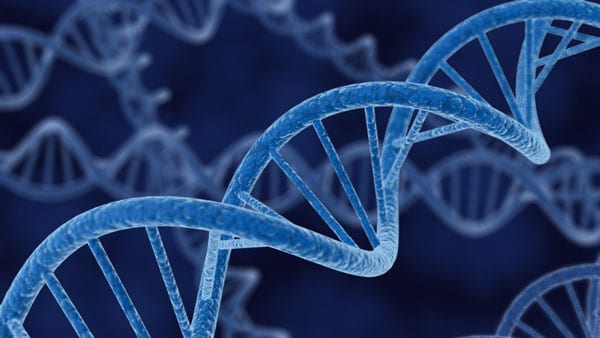
Example Project: Make your DNA
Practice the rules for complementary base pairing between two strands of DNA by emphasizing the bonds and backbone of DNA and the base-pairing rules.
BIOL 1055 is a three-credit molecular biology course that introduces and emphasizes the basic concepts of molecular biology and the application of these concepts in the medical field. The knowledge attained in the course will be used to understand human diseases.
Topics include knowing about biomolecules like DNA, RNA, and proteins, central dogma, DNA replication, DNA repair, and regulation of gene expression. Each of these topics will be explored through course readings, video lectures, case studies, journal clubs, discussion forums, and digital concept mapping.
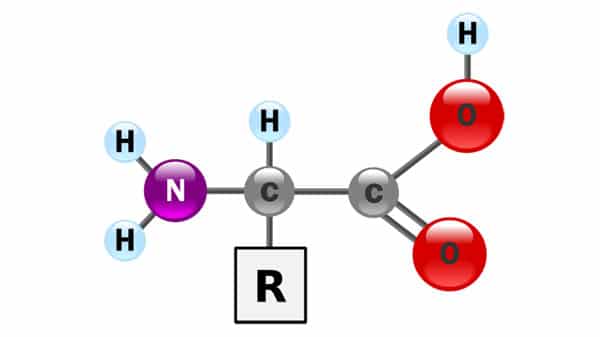
Example Project: Protein Puzzle Game
Enhance your understanding of the folding of proteins. Focus is on the structure of amino acids, different categories of amino acids, the structure of proteins at four different levels, and the importance of protein structure to its function.
Molecular Biology Course Outcomes
- Describe the structure and function of biomolecules like DNA, RNA, and proteins.
- Illustrate how the information flows from DNA to RNA to proteins in the prokaryotic and eukaryotic systems.
- Demonstrate how alterations/ mutations at the genetic level affect proteins and causes human disease.
- Describe and illustrate the significance of DNA replication process for cell division.
- Explain the importance of fidelity of the process of DNA replication.
- Identify the protein machinery involved in DNA replication process in prokaryotes and eukaryotes.
- … and more.
Molecular Biology Course Prerequisites
This is an advanced-level course, and as such, two prerequisite courses are recommended before registering. The two courses are one semester of college-level biology (BIOL 1010), and one semester of college-level general chemistry (CHEM 1010).
Immunology – BIOL 1060
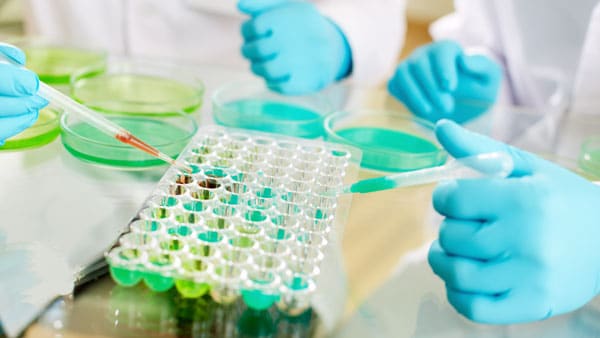
Example Project: Business Proposal
Create a business proposal to complete a proof-of-concept test. You are seeking an investment from a venture capitalist, and you plan to make a diagnostic assay test based on antigen-antibody principles to accomplish a medical diagnostic of your choice.
BIOL 1060 is a three-credit immunology course that provides students with an in-depth understanding of the human immune system. It first introduces students to the structure, functions, and capabilities of immune cells, tissues, and organs. Globally, the course informs students of different modes of action and the ability of immune effector populations in combating various types of infections.
This course will also emphasize current immunological techniques such as a recombinant antibody, flow cytometry, and ELISPOT technology. Further, issues related to vaccine development and therapeutics will also be included in the course. Finally, students will develop disciplinary appreciation through reviews of case studies, research articles, and current perspectives in the field of immunology.
Immunology Course Outcomes
- Identify the cellular and molecular basis of immunity and immune systems.
- Summarize the cellular effector populations involved in the generation of immunity.
- Distinguish between the contribution of the immune system in maintaining balance in healthy versus diseased conditions.
- Recognize and distinguish triggers of immunological response.
- Differentiate between the types of immunological responses and the types of effector cell populations involved.
- Critique molecular events involved in generating humoral and cell-mediated immunity.
- … and more.
Pharmacology- BIOL 1070

Example: Kahoot Gaming platform
Engage in virtual study group review sessions. Offered as an optional review, there will be a Kahoot game scheduled each week.
BIOL 1070 is a three-credit pharmacology course that introduces the basic concepts of pharmacology and drug usage for allied health professions. It introduces students to the fundamentals of pharmacology, examining the effects of drugs on the human body systems and the effects of those biological systems on drugs. It explores disorders associated with various body systems and the drugs used for diagnosis, treatment and prevention of those disorders.
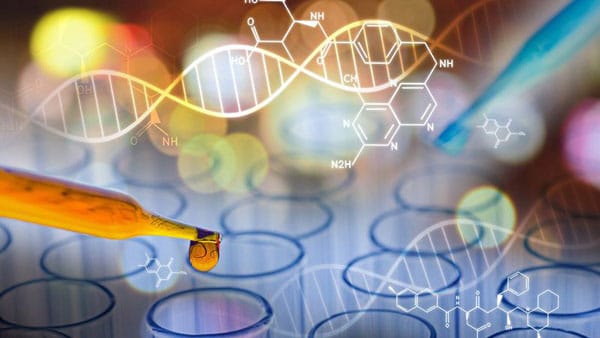
Example Project: Pharmacology at Home
Investigate everyday items you may have and use around the home regularly that you not have considered to be drugs.
The course topics are presented through readings, instructor-led video lessons, and an assortment of interactive activities including discussion forums. Students will be assessed throughout the course with worksheets, quizzes and case studies, as well as both a cumulative midterm and final exam.
Click here to read about the course developer and subject matter expert, Kim Marshall.
- Review the fundamentals of pharmacology.
- Discuss the pharmacokinetic process.
- Explore the effects of drugs on human anatomy and physiology.
- Explain the pharmacological benefits and risks of drug therapy.
- Identify commonly used drugs by trade names, generic names and primary classification.
- Examine basic concepts of drug dosing.
- … and more.
Complete at your own pace within 16 weeks
Typical students will complete these new online science courses in approximately 16 weeks. However, these online science courses are self-paced, so students are able to complete the course in fewer than 16 weeks.
Courses begin every 2-3 weeks
SPHP classes begin the first and third Wednesdays of the month, including these new online science courses. You must be registered for your class by 12:00 noon EST the Monday before the class starts. You have 16 weeks from your official start date to complete your course. Click here for the UNE academic calendar and SPHP course start dates.
24/7 online registration
You may enroll for these new math courses or any of our SPHP courses through the SPHP self-service registration portal.
Tags: Online Science Course | Science Prerequisites for Health Professions | SPHP